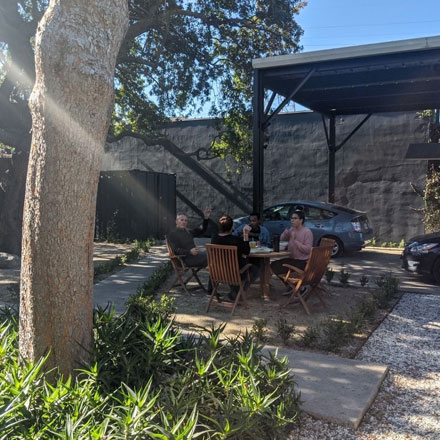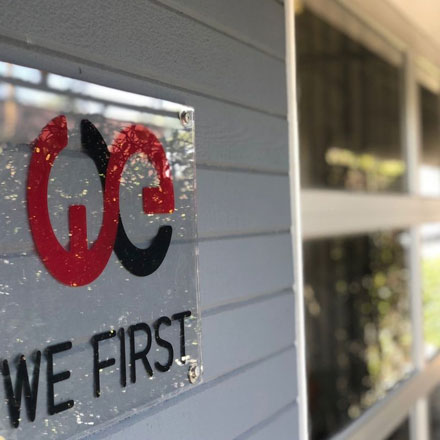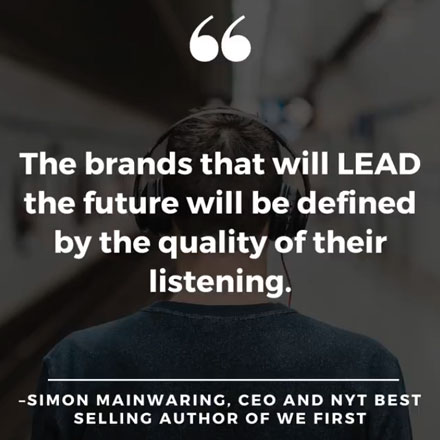
Purpose At Work
Purpose At Work: How Uber Scales A Culture Of Entrepreneurship
This is the tenth interview in a series about how to lead with purpose, which took place around the Social Innovation Summit. The Summit is an annual gathering of impact driven entrepreneurs who share insights on how to leverage business for social innovation. For this interview I spoke with Meena Harris, Head of Strategy and Leadership at Uber.
In the face of several challenges, Uber is working to foster a purposeful culture that’s good for employees, the business and the communities it works in. One of their key focus areas is entrepreneurship.
“Entrepreneurship fuels the work that we do,” Meena Harris tells We First Branding. “It also shapes how we think about our internal workforce. We are very decentralized. There’s sort of a bunch of min-startups in cities across the world. That’s what enabled our business to grow”
Not only does the nature of the ride hailing app enable its workers to work on their own terms, it also supports entrepreneurship out of the driver’s seat. As Meena points out, there are thousands of “full-fledged entrepreneurs that rely on our platform to maintain the flexibility that allows them to do their work and to supplement their income. We want to make sure we’re preserving that culture. It’s something that’s helped us as a business as well.”
Uber’s entrepreneurial ethos helps the company develop what Harris calls “Intra-preneurship.” That is, “people bring that entrepreneurial perspective to the work they do. That’s good for them and for business,” she says. “But there are ways we can do better, right? It’s not growth at all costs. It’s responsible growth. It’s making sure it’s not leading to deficiencies in culture. It’s not moving so fast that we’re not paying attention to those other things.”
The transportation company is investing in programs that empower underserved individuals to take their ideas to the next level. “There’s this threshold question of who actually gets access to that (entrepreneurship). We want to make sure we’re giving access and opportunities to diverse people. People who are going to bring different experiences and perspectives to the table.”
The rideshare company is also investing in programs like Uber Pro, which offers qualified drivers opportunities to attend college and to support women and people of color. “We’re supporting a new initiative called Operation 3 to 300. The idea is to help 300 women and people of color to launch businesses through the fellowship program by 2021.”
Operation 3 to 300 is just one expression of how Uber is working to develop diversity and inclusion. “It must be baked into everything,” Harris says. “It has to be integrated into your products and your initiatives from the very beginning. It can’t be an afterthought or a response to somebody criticizing you.”
Uber is now a multinational corporation with offices and contractors across the globe. What’s Uber’s secret to taking that entrepreneurial spirit to scale?
“It’s easier to do it when you’re a lean startup and it’s a small organization. Regardless of size, it has to come from the top-down and that is a priority. You have to train managers to encourage their teams to be entrepreneurial,” Meena shares. “You have to give employees a lot of autonomy to think more creatively and out of the box. You need to hire people who are going to understand how to do this responsively and strategically.”
The takeaway here is that fostering entrepreneurship comes from both employees and the employer. Employees must be able to manage their own projects, stay disciplined and practice creative problem solving. At the same time, as an employer, you must give your employees the freedom to make their own decisions.
With Uber’s growth comes expanding stakeholder interest. How does the company stay true to its purpose, values and the culture of entrepreneurship when there are all the demands from the street?
“One of the challenges mature companies face is evaluating performance and furthering the business. I think it’ll vary company to company,” Meena says. “Having a lab or dedicated team is a great way to make sure the work gets done.”
Another part of keeping the entrepreneurial spirit alive is to support employees to follow their passions out of the office. Meena mentions programs like McKinsey’s Take Time initiative, Pepsi’s design studio and LinkedIn’s InDay. These programs give team members the time and resources they need to pursue goals that may not be directly related to their jobs.
In a similar vein, Uber recently established a “citizenship goal.” This goal supports employees “to do something outside of the business that makes an impact on their communities,” Harris says. “It helps employees feel valued and fulfilled and supported. It’s not just good for them but also for the company culture and your bottom line.”
Studies show that today’s workforce, especially millennials and Gen Z, want to work with purposeful brands. They also want flexibility and opportunities to make a difference. When companies don’t give employees the freedom to explore creative problem solving they “limit their ability to bring that sort of entrepreneurship back inside,” Meena says.
“Supporting the people in our businesses is what we need to be thinking about. It’s a no-brainer. It improves leadership. It improves productivity. It cultivates this entrepreneurship concept and improves retention.”
As Uber develops, Harris says the company will work on building opportunities and communities in which its employees can thrive. For Harris and Uber, this means cultivating extended care programs from early life to elder care. It means making time and space for team members to follow their own passions while also developing Uber’s bottom line.
“That’s what our actual business is about. It’s where a lot of businesses are headed. It’s also an entirely new way of looking at work and the expectations that today’s workforce has from an employer.”





